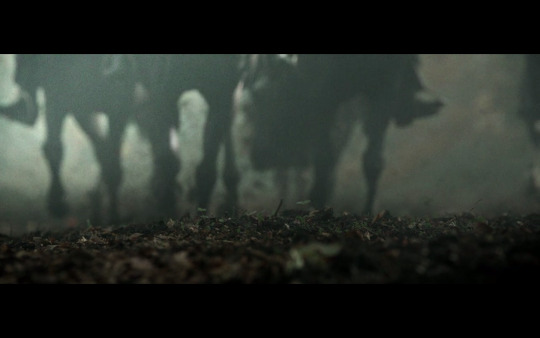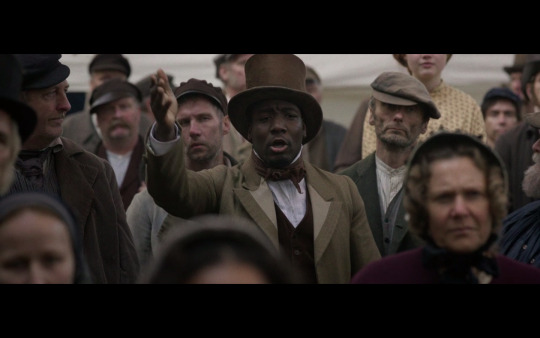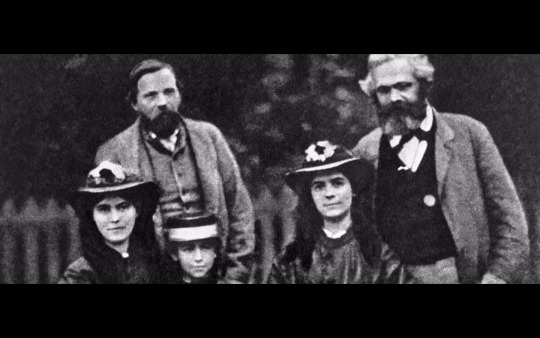#the young karl marx
Explore tagged Tumblr posts
Photo




THE YOUNG KARL MARX (2017) dir. Raoul Peck MISS MARX (2020) dir. Susanna Nicchiarelli
#the young karl marx#miss marvel#gifs*#parallels*#filmedit#filmgifs#dailyworldcinema#worldcinemaedit#dailyflicks#useroptional#doyouevenfilm#fyeahmovies#userfilm#cinemapix#cinematv#chewieblog#userbbelcher#moviegifs#moviehub#userstream#ceremonial#perioddramasource#perioddramaedit
209 notes
·
View notes
Video
youtube
happy birthday to karl marx ive always wanted to post this video to tumblr. for the freaks on here
#you have to watch it all it just keeps going. you'll understand. you'll thank me. all of you will#karl marx#friedrich engels#the young karl marx
25 notes
·
View notes
Photo

10 notes
·
View notes
Text










“I’ve enough fighting with pins. I want a sledgehammer.”
The Young Karl Marx (2017) Directed by Raoul Peck Cinematography by Kolja Brandt
#film stills#the young karl marx#raoul peck#kolja brandt#august diehl#stefan konarske#vicky krieps#hannah steele
8 notes
·
View notes
Text

39 notes
·
View notes
Text



happy pride, don't forget to share the means of production with your comrade, remember that we ought to fight against all kinds of oppression and go watch "young marx" cause marx and engels should have kissed and i'm in love with olly chris
#young marx#karl marx#friedrich engels#oliver chris#rory kinnear#history#19th century#victorian era#fellas is it gay if you are comrades#my art
33 notes
·
View notes
Text

Here to report that Marx kisses Engels on the lips in Young Karl Marx. Awesome movie btw, you get to see Marx being a petty bitch
9 notes
·
View notes
Text

English Classroom Bookshelf Haul/TBR!
Desc:
The Portrait of a Lady by Henry James Wuthering Heights by Emily Brontë Utopia by Thomas More Pride and Prejudice by Jane Austen The Sound and the Fury by William Faulkner TTheir Eyes Were Watching God by Zora Neale Hurston Basic Writings on Politics & Philosophy from Marx & Engels Catch 22 by Joeseph Heller Down These Mean Streets by Piri Thomas The Wretched of the Earth by Frantz Fanon Great Expectations by Charles Dickens
#tbr#book haul#nonfiction#classics#literature#frantz fanon#the wretched of the earth#jane austen#charlotte bronte#karl marx#charles dickens#young lords#political theory#philosophy#leftism#it isn't stealing i promise the books are free they have so many#most of these were options for a classics/modern classics project if that wasnt obvious#i ended up with dostoyevsky because i'm a pretentious little gay person#tbr aka the books that haunt my waking life#i've started fanon i swear#tbr pile#tbr list#i am losing the term tbr so loosely there is a very very small chance i am reading catch-22 in the next 10 years
6 notes
·
View notes
Note
Suggestions for 2024's poll: Robert Baratheon from GoT (or just Bryan Blessed himself), and Karl Heinrich Marx (from the anime "the leader")
HUH….

#Karl Marx Bishounen moments#Older Karl Marx is not a bear either but I googled this and got beat in the face by handsome young Karl Marx#Poll asks#making a note about house Baratheon though
11 notes
·
View notes
Text
Finished the drawing! Feedback is super appreciated <3

0 notes
Text
sidenote re: the book my last post was about:
looked at goodreads one and two stars to see if i was crazy (i am correct) and hilariously found a review calling out the white feminism just-found-out-about-sweatshops trying very hard to be Cool And With It vibes with... the review author's own liver-damaging levels of the same thing, just about a decade older
#ink post#rambling#like. if your 'just discovered socialism' shade about this is accompanied by a reference that makes it clear#that for you that date was 1996. this is not a win for you#it isn't anything at all really. none of us were around to be truly hip and discover socialism at the dawn#it's not a crime to be a teenager or even young adult who does not have a perfect knowledge of things out of your sphere and predating you#the problem is that BOTH of you are getting high and mighty about it instead of going hey i wonder who knew about this before me#and do they perhaps have perspective i would find enlightening#is this person perhaps even not named karl marx? impossible there is a direct line between me and him and nothing in between#bc everyone else has been SLACKING. like shhhhh. can we engage genuinely and not as a way to seem the Best and Coolest? PLEASE?
1 note
·
View note
Text
Random astrology observations (very shallow but fun ig)

- Mercury conjunct sun in a chart gives very logical/mathematical intelligence you will find that the best student in the classroom always have this conjunction, the closest is the orb, the more pronounced are these qualities.
- Venus in exaltation gives deep thinking abilities and it is perfect for philosophy, think about philosophers like Kant, Plato (allegedly), Karl Marx. Or even scientists like Albert Einstein ( Venus in revati),all influenced our modern world in an unthinkable way.
-Jupiterians remind me of the perfect rennaissance man who is all-rounded excelling in every sphere of intelligence: you will find that they really have a deep love for education: absorbing information and utilizing it in everyday of their lives.
- Ketu people are so funny, the funniest imo like they are kind of lost and dgaf about people so they are really blunt and random it's just very comical
- Mars men are popular or rather notorious: they just have an effect on girls from what I observed: Chitra and Dhanista men most of the time. I know a Chitra sun guy that winks at you everytime you cross eyes with him lol, a dhanista sun and ascendant boy that I know had girls writing their snapchats all over his backpack in high-school also he would get purchased by them like they would form circles around him it was pretty funny to see
- Purva bhadrapada men are SASSY
- Rohini women are really sensitive about their appearance and love when people are jealous of them
- Venusians have a keen eye for aesthetics
- When it comes to writing poetry: Virgo people are simply the best : Uttara phalguni, Hasta and Chitra
- Ketu women are able to see through the illusions of life: especially ketu on the ascendant, their intuition is simply always right
- Having your sun in the 11th house makes you very likable, if it is not afflicted you will have a large circle of friends, be well known in your area.
- A lot of energy in the 12th house add an air of mystery on an individual it can really scare some people off: they can be excluded from their community, can be deemed as scary or weird
- If you want a venusian to like you : be pleasant, smell good, be funny, make them eat well, give out thoughtful gifts. Venus loves sensorial stimulation
- If you want to know what life direction you should be taking, look at your d9 and d60 charts
- Pisces women are in tune with their sexualities: they can loose their virginity at a really young age and are curious about this side of life
- Ashlesha people need to be careful about what they say: they grow up in really harsh environments so they internalize this harshness and sometimes they can really projects on others and hurt with their words for nothing kind of like a snake
Anyways I think that's all I will comeback with more astrology observations on more specific subjects.
Also be mindful, you can not analyze a chart without looking at it completely so these are not to be taken at the letter close, it can always differ depending on the chart: it is simply for entertainment.

#astrology#vedic astrology#vedic astro notes#vedic astro observations#fashion#aesthetic#vintage#cinema#venus#purva bhadrapada
660 notes
·
View notes
Note
what *do* you think of nanami and higuruma as just.. characters at face value? without the connotation of... smut??
are you into jjk in the first place? 🤔
I've only seen the anime, so I don't have much of an opinion of Higurama and I'll have to focus on the rest of your question, which I'll answer in reverse order (you'll see why).
JJK is a story about how contemporary society exploits, abuses, and seemingly loathes youth and innocence - attempting to discard or hammer it out of the young at the earliest opportunity. As a society, it's a gerontocracy with older citizens gleefully flinging the young at every danger and threat with abandon. I often associate the quote below with the show:
"Men make their own history, but they do not make it as they please; they do not make it under self-selected circumstances, but under circumstances existing already, given and transmitted from the past. The tradition of all dead generations weighs like a nightmare on the brains of the living." - Karl Marx
That last bit is key and actually touches on something central to my own research and writing - how the actions of past generations can limit those of their descendants. Jujutsu society, especially if you look at the noble houses, only values those of the younger generations whose abilities and talents suit the demands and priorities of the elders - with all others discarded or excluded, such as Toji and Maki although they have very different reactions to that rejection.
Nanami is a window into, and a reaction to the gerontocratic order. My understanding is that he's the first sorcerer in his family, an automatic outsider, pushed further to the edges and even temporarily outside of Jujutsu society by the death of his friend. He lives outside of it for several years, and discovers a similar order to the world elsewhere - a cycle of exploitation and abuse. His return seems to be predicated on a refusal and a resistance to the very social order that killed his friend and stole his youth, fulfilling his role but modelling an alternative path where the next generations are valued and protected.
It costs him his life, in the end: he pushes back against the world, and it crushes him for it. I can see his death being a significant turning point for several central characters later on.
So what do I think of them as a character, as a person? Despite his insistence on rules and regulations, he's a frustrated idealist - one who is not at home in his own world, and knows full well that it will one day destroy him. There's a lot to like and respect there, and I often prefer characters who cleave to causes that seem hopeless - but recognise the importance of resistance and remaining true to their ideals, and shielding the vulnerable from institutional harm. Another quote (sorry, I'm an academic):
"You can fight all the devils and slay them, but if you're made hard at the days end then they win." - Brother Ali, Live and Let Go
I realise that's probably far more detail than you expected or even wanted, but this is what happens when I answer questions at 4:45am while entertaining my children.
#mr.haitch#pseudowho#mrhaitch answers you too#mr haitch#pseudowho answers you#mrhaitch#mrhaitch lectures you#jjk#nanami kento#jjk nanami
137 notes
·
View notes
Text




Not Harrier Du Bois' "first fire" of political awakening (something so ingrained in him that he only needs 1 Rhetoric to think it) being the exact same sort of "why does capitalism restrict the rights of the poor to scavenge and scrounge for survival" idea that originally radicalized young Karl Marx when he was studying one of his father's legal cases...
288 notes
·
View notes
Text
For those who are totally unfamiliar with the works of Karl Marx, can you please explain how one must distinguish between his early works and the later works that you describe as "eco-Marxism"? Marxism is known for socialism, and socialism is often described as the exploitation of the working class. Capitalism has a tendency to increase technologies and promote innovations because of market competition. But Marx thought that once the workers take over power and kick out the capitalists, they can utilize the development of productive forces for the sake of themselves — more wealth, more well-being. But there is one problem: Sustainability. Because as Marx started to study natural sciences later in the 1850s and 1860s, he came to realize the development of technologies in capitalism actually don't create a condition for emancipation of the working class. Because not only do those technologies control the workers more efficiently, they destabilize the old system of jobs and make more precarious, low skilled jobs. At the same time those technologies exploit from nature more efficiently and create various problems such as exhaustion of the soil, massive deforestation, and the exhaustion of the fuels, and so on. Marx came to realize that this kind of technology undermines material conditions for sustainable development of human beings. And the central concept for Mark at that time in the sixties is metabolism. He thinks that this metabolic interaction between humans and nature is quite essential for any kind of society, but the problem of capitalism is it really transforms and organizes this entire metabolism between humans and nature for the sake of profit-making. Technologies are also used for this purpose. So technologies are not for the purpose of creating better life, free time and sustainable production, but rather it exploits workers and nature at the same time for the sake of more growth, more profit, and so on. My point is basically Marx was quite optimistic when he was young in terms of the development of technologies, but later he came to realize actually technologies have more damaging impact on both humans and nature. So he became more critical of that possibility of solving those problems of poverty and ecological problems using technology. That's how the issue of degrowth and eco-socialist ideas came to be central for his ideas.
143 notes
·
View notes
Text

MOZART: AT THE GRAVE
The untimely death of Wolfgang Amadeus Mozart on December 5, 1791, at the peak of his artistic prowess, silenced the detractions and jealousy of his critics. It elevated his reputation among those who understood the magnitude of his loss. His death elicited widespread public sympathy, particularly for his bereaved family, who were left in financial need. This sympathy translated into generous support not only in Vienna and Prague but also in other cities visited by his widow, Constanze, during her professional tours.
EFFORTS TO SUPPORT CONSTANZE AND HER FAMILY
In 1796, during a visit to Berlin, Constanze received support from Frederick William II, who allowed her to use the opera house and royal musicians for a benefit concert. She performed as a vocalist at this event (February 28). The concert program noted the king’s esteem for Mozart's talent and his regret that Mozart had not been able to reap the full rewards of his work. Despite such efforts, these initiatives were insufficient to provide long-term financial security.
In 1799, Constanze sold all the manuscripts in her possession to the publisher André for 1,000 ducats. While this sale brought immediate relief, some manuscripts had already been lost or gifted, and the André collection itself was later dispersed, depriving public institutions of a complete archive of Mozart's work.
CONSTANZE’S SECOND MARRIAGE
Constanze secured a stable future through her second marriage to Georg Nikolaus Nissen, a Danish diplomat, in 1809. Nissen, whom she met in 1797, proved to be a devoted supporter, helping her manage her affairs and raise her children. After resigning from his diplomatic career in 1820, Nissen settled with Constanze in Salzburg, where they lived alongside Mozart’s sister, Nannerl. Nissen passed away in 1826, and Constanze died on March 6, 1842, shortly after the arrival of a model for a Mozart statue in Salzburg.
MOZART’S CHILDREN
Karl Thomas Mozart (1784–1859):
Karl pursued careers as a merchant, musician, and eventually a minor government official in Milan. He was an accomplished pianist but did not achieve widespread recognition.
Franz Xaver Wolfgang Mozart (1791–1844):
Known as Wolfgang Jr., he became a professional musician, achieving moderate success as a pianist and composer. However, his father’s towering legacy overshadowed his career. He held positions as a musical director in Lviv (Lemberg) and later in Vienna.
POSTHUMOUS RECOGNITION AND MEMORIALS
Mozart’s legacy was celebrated widely after his death:
Anniversaries and Concerts:
His works and commemorative funeral cantatas were performed in numerous cities. Significant anniversaries of his birth and death continue to be honored with concerts worldwide. The centennial of his birth in 1856 was marked by extensive celebrations across Germany and beyond, spurring renewed interest in his compositions.
Monuments and Statues:
In 1799, Duchess Amalie of Weimar erected a terracotta memorial in Siefurt featuring a lyre and theatrical masks.
A grand statue of Mozart was unveiled in Salzburg on September 4, 1842, sculpted by Schwanthaler. While the statue reflects Mozart's artistic dignity, some critics argue it lacks idealized force.
In Vienna, a monument designed by Hans Gasser was installed in St. Marx Cemetery on December 5, 1859, featuring a mourning muse holding the score of the Requiem.
Institutions and Societies:
The Salzburg Mozarteum, founded in 1842, preserves important family documents and promotes music, particularly sacred music.
The Mozart Institution in Frankfurt, established in 1838, supports young musicians through prizes and scholarships.
A Mozart Society, founded in 1855, aids struggling musicians.
MOZART’S LEGACY
Mozart’s true and enduring fame lies in his works. His compositions influenced countless successors, providing a foundation for both innovation and imitation. His artistic genius bridged the traditions of his era with the possibilities of the future, inspiring every composer who followed.
COMPARISONS AND CHARACTER
Mozart’s artistry has often been compared to other great figures, notably:
• Raphael for his harmonious and majestic beauty.
• Shakespeare for his dramatic creativity and humor.
• Goethe for his clarity of sentiment and depth of human expression.
Despite these parallels, Mozart’s individuality remains unparalleled in music. His works exhibit universality and truth, transforming human emotion into music with unmatched authenticity. His legacy embodies the profound joy of artistic achievement and the purity of his creative spirit.
FINAL REFLECTION
Mozart’s life, though marked by hardship and untimely death, is a testament to the power of artistic genius. His contributions to music are eternal, and his name stands among the greatest in history. As his countrymen might say, “And he was one of us!”
(Portrait of Franz Xaver Wolfgang (1791-1844) and Karl Thomas (1784-1858), sons of Wolfgang Amadeus Mozart (1756-1791), Painted by Hans Hansen (1769-1828))
Thank you Alex Rosas Navarro FB @ Mozart Group
#mozart#mozart life#wolfgang amadeus mozart#classical composer#classical history#classical music#classical art#classical instruments#18th century#classical
9 notes
·
View notes